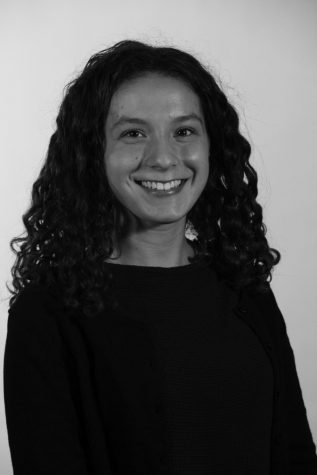A Look at CPSD’s FY 2019 Budgeting Process
April 23, 2018
On Thursday, March 15th, Superintendent Kenneth Salim presented his proposed budget for the 2019 fiscal year to the School Committee, one of many steps in the budget creation process.
The budget is what allows the school district to function, but it is also where new initiatives start. As the School Committee and the superintendent’s office consider how to spend the money (from the city, the state, and the federal government) that isn’t already allocated, they receive feedback from teachers, parents, and students on the community’s desired expenditures. The School Committee then communicates to the superintendent’s office what it would like to see in the budget.
After talking to the city manager, Louis DePasquale, the superintendent comes out with a budget proposal. When this proposal is released, the School Committee can tweak the budget and eventually votes to pass it before sending it off for the City Council to examine.
Cambridge Public Schools will receive 191.1 million dollars next year, a 4% increase from this year’s school budget. The extra resources will be used to meet the demands of transportation and growing enrollment as well as to make new investments in initiatives that support the District Plan.
The District Plan is a made up of five strategic objectives meant to serve as guidelines for the school district’s work. The strategic objectives are to ensure equity and access to education, to provide engaging learning, to focus on the whole child as an individual, to expand family and community partnerships, and to guarantee more expansive implementation and progress monitoring.
In creating the budget for the 2019 fiscal year, the district used the objective of equity and access to allocate money for five programs: an expansion of leveling up at CRLS (costing $211,000), de-tracked 7th grade math classrooms (costing $336,000), an expansion of CRLS Connects—the one-to-one technology program—(costing $109,000), a teacher diversity pipeline—an effort to recruit a diverse teaching population from local universities in partnership with the W.K. Kellogg Foundation and Boston University—(costing $36,000), and an expansion of cultural proficiency training (costing $50,000).
In addition to these programs, the 2019 budget includes funding for improvement in social and emotional learning, a design lab at CRLS, improved communication with families, and the hiring of an expert focused on research assessment and evaluation of the district.
The extra funding will improve students’ learning experiences immensely. Nicole Hart, a CRLS instructional technology specialist, wrote in an email to the Register Forum, “With CRLS Connects, students will be able to access CRLS’ digital resources 24/7, and can do their work from wherever they go.”
To increase student involvement in the budget process this year, the school department started a participatory budgeting program for CRLS students, modeled after the city’s program. The school department’s program allows CRLS students to vote on how $5,000 of the department’s budget will be spent.
School Committee member Patty Nolan, who introduced participatory budgeting at CRLS, noted in an interview with the Register Forum, “We are always seeking ways for youth involvement, for student voice, and for including young people who can’t vote yet in some kind of civic process, and this seems like exactly the kind of thing it should be.”
The budget for fiscal year 2019 is 191.1 million dollars, but an estimated 82% of that money will be spent on teacher salaries. Around another 12% of it will be spent on out-of-district tuition for special education students, transportation, and instructional materials and technology. This leaves 5% of the budget, or 10.2 million dollars, for other expenses.
Mayor Marc McGovern noted, “What people don’t always understand is that the budget doesn’t start from scratch. … There are fixed expenses in the budget—personnel, salaries, benefits…When you actually get down to the miscellaneous money, it’s actually not as much as people might think.”
On April 2nd, the superintendent released a memo detailing the adjustments he made to the FY 2019 budget after the School Committee and the public looked at it. The adjustments shift where money will be spent slightly, but the overall amount of funding has not changed.
This piece also appears in our March/April print edition.









